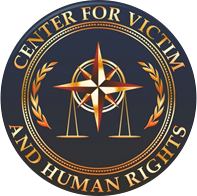By: CVHR Law Clerk, Hayley Kemp
In October 2000, Congress created the “T” Nonimmigrant Status (T visa) by passing the Victims of Trafficking and Violence Protection Act (VTVPA). This legislation aimed to strengthen law enforcement agencies’ ability to investigate and prosecute human trafficking cases and offer protection for victims. The goal of this federal legislation is rooted in what is commonly known as the three “P’s”: protection, prosecution, and prevention. With this legislation, Congress sought to prioritize protecting victims, prosecuting traffickers, and preventing future acts of human trafficking through their implementation of the VTVPA.
Human trafficking can be divided into two categories: labor trafficking and sex trafficking. Both categories are a form of modern-day slavery in which traffickers lure individuals with false promises of employment and/or a better life in general. Sex trafficking means, “the recruitment, harboring, transportation, provision, obtaining, patronizing, or soliciting of a person for the purpose of a commercial sex act.” (22 U.S.C. § 7102(10)). Labor trafficking or involuntary servitude is defined as, “any scheme, plan, or pattern intended to cause a person to believe that, if the person did not enter into or continue in such condition, that person or another person would suffer serious harm or physical restraint.” (22 U.S.C. §7102(6)(a)). Although T visas are available to victims of both categories, in practice, the T visa tends to help more victims of sex trafficking than those victims of labor trafficking.
Oftentimes, victims of human trafficking are poor and unemployed. Sadly, these victims also lack much needed access to social services. Through a T visa, Congress protects victims that are trafficked into the United States and allows the victim to remain in the U.S. to assist in an investigation or prosecution of the victim’s human trafficking case.
Victims of human trafficking are eligible for T visas only when they are a victim of human trafficking, as defined by 22 U.S.C. § 7102. In other words, victims of human trafficking must have been trafficked into the U.S., American Samoa, the Commonwealth of the Northern Mariana Islands, or at a port of entry. Furthermore, victims must be able to demonstrate that he or she would suffer extreme hardship resulting in unusual and severe harm if they were removed from the U.S. Additionally, victims are only eligible for the T visa if they comply with any reasonable request from a law enforcement agency for assistance in the investigation or prosecution of human trafficking. However, if a victim is under the age of 18 or unable to cooperate due to physical or psychological trauma, he or she is exempt from complying with those requests.
If a victim meets the requirements for a T visa, they should consider submitting the proper application for T Nonimmigrant Status, which includes the Form I-914 and supporting documentation and evidence. Due to the protections T visas afford victims of human trafficking, T visas are a necessary and an important part of helping to end human trafficking for good.
